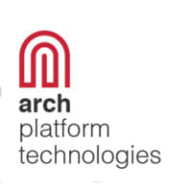

SUSE Linux Enterprise and Arch Platform are competing in the enterprise Linux space. SUSE Linux Enterprise seems to have the upper hand due to its advantages in support and pricing, while Arch Platform's strong feature set justifies its higher cost.
Features: SUSE Linux Enterprise offers robust security, scalability, and comprehensive support options, making it ideal for large-scale operations. In contrast, Arch Platform provides high customization and a minimalistic design appealing to experienced developers. The main difference is SUSE's enterprise-ready stability versus Arch's flexibility.
Ease of Deployment and Customer Service: SUSE Linux Enterprise ensures streamlined deployment with extensive documentation and responsive customer service. Arch Platform, requiring a hands-on deployment approach, caters to advanced users who gain support from a vibrant online community. SUSE's structured support stands in contrast to Arch's community-driven assistance and self-reliant setup.
Pricing and ROI: SUSE Linux Enterprise provides a straightforward pricing structure, offering clear ROI benefits through reduced downtime and efficient support, making it cost-effective long-term. Arch Platform, although having a lower initial cost due to its open-source nature, demands more investment in time and expertise for setup and maintenance. SUSE's structured pricing aligns with its enterprise-grade offerings, while Arch offers more value for users seeking high customization at lower upfront costs.

Arch improves the ability of companies to dynamically manage high performance cloud infrastructure in a way that improves the lives of demanding teams who need access to powerful computers and IT resources wherever they are.
The Arch platform is there so no matter what challenge the world throws at our clients, they can rapidly, securely, and effectively adjust to keep their teams running full speed ahead.
SUSE Linux Enterprise offers features like YaST for server management, seamless integration with Oracle and SAP, and a robust security setup. Renowned for stability, it efficiently supports workstations, SAP workloads, and cloud migrations across diverse industries.
SUSE Linux Enterprise is known for its lightweight design, high performance, and ease of installation. Its flexible architecture supports extensive documentation and efficient patching. The system uses the BTRFS file system for effective virtualization, and community support is significant. However, challenges include package updates causing conflicts, difficult initial setup and software management, high pricing, and support response times. Improvements in security compliance, cloud integration, hardware compatibility, and documentation are also needed.
What are SUSE Linux Enterprise's important features?
What benefits should users expect from using SUSE Linux Enterprise?
Industries like healthcare and banking use SUSE Linux Enterprise for secure transactions and structured application deployment. It is also a choice for organizations involved in testing, automation, and web development, offering support for SAP HANA integration and facilitating cloud migrations.
We monitor all AWS Marketplace reviews to prevent fraudulent reviews and keep review quality high. We do not post reviews by company employees or direct competitors. We validate each review for authenticity via cross-reference with LinkedIn, and personal follow-up with the reviewer when necessary.